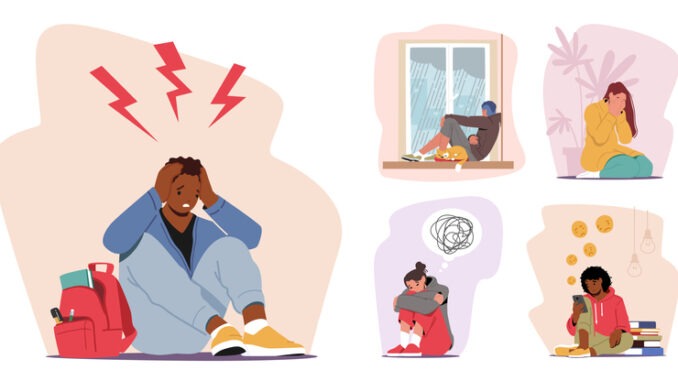With the rise in children seeking counselling sessions for mental health issues, such as stress and anxiety, school business leaders must be aware of the pressing need for early intervention and equip their staff with the support required to address these concerns proactively.
CREDIT: This is an edited version of an article that originally appeared on NSPCC
The statistics are stark: in 2022/23, Childline provided over 105,000 counselling sessions specifically addressing mental and emotional well-being. Out of these, more than 30,000 focused on the weighty issues of stress and anxiety. The burden on young shoulders is evident.
Childline is proactively weaving a safety net for children’s mental health by deploying Mental Health Support Teams across schools in England. The mission is clear: ensuring that every pupil, no matter the challenge they face, can access the help they need.
Youth mental health: The top concerns
A magnifying glass on the concerns children and young people bring to Childline reveals the top five worries. Anxiety and stress take the top spot, dominating 31,143 counselling sessions, followed by low mood and unhappiness at 14,253. Depression accounted for 6,397 sessions, while loneliness was the silent struggle in 5,109 counselling sessions.
The stories that echo through Childline’s counselling sessions are telling. A 16-year-old girl shared her struggles, saying, “I’m exhausted and feel like everything is falling apart. My friends are all stressed and depressed. My parents are fighting constantly with me trying to mediate. Then there’s exams as well. It’s all so stressful. I can’t remember what it’s like to be a carefree child.”
Another 18-year-old girl admitted, “I haven’t slept at all from worrying and can’t stop crying. I feel like I’m failing at everything, school, friendships, life, all of it. Even admitting I feel like this to my parents feels like failing. I didn’t know who else to talk to, then I remembered Childline. Thank you for helping me manage these emotions.”
Youth well-being: A shared responsibility
Acknowledging that a child might be grappling with issues like depression or anxiety can be a heavy pill for parents to swallow. It is, however, essential that young people feel they have a solid support system in the adults around them.
In schools and organisations, ensuring staff are properly trained, aware and prepared is pivotal. The approach should include:
- Assurance: Let young people know you stand with them, providing unwavering support.
- Patience: In times of turmoil, patience is your greatest ally. Stay calm and approachable even if the young person’s behaviour is distressing.
- Validation: Acknowledge that their feelings are real and significant. Encourage them to share openly.
- Holistic Well-being: Explore healthy coping mechanisms such as yoga, breathing exercises, and mindfulness.
If you are ever concerned or require guidance, Childline’s Helpline is there to help. They offer informative pages on children’s mental health, covering topics like depression, anxiety, suicidal thoughts, and self-harm. Support for parents navigating their own mental health struggles is also available.
Children should also be made aware that they can find a treasure trove of information and advice on mental health and coping strategies on the Childline website.
In this time of increased stress and anxiety among young people, ensure your school provides essential support and fosters an environment where young people can navigate their mental health challenges, ultimately helping them thrive and succeed academically and personally.




Be the first to comment